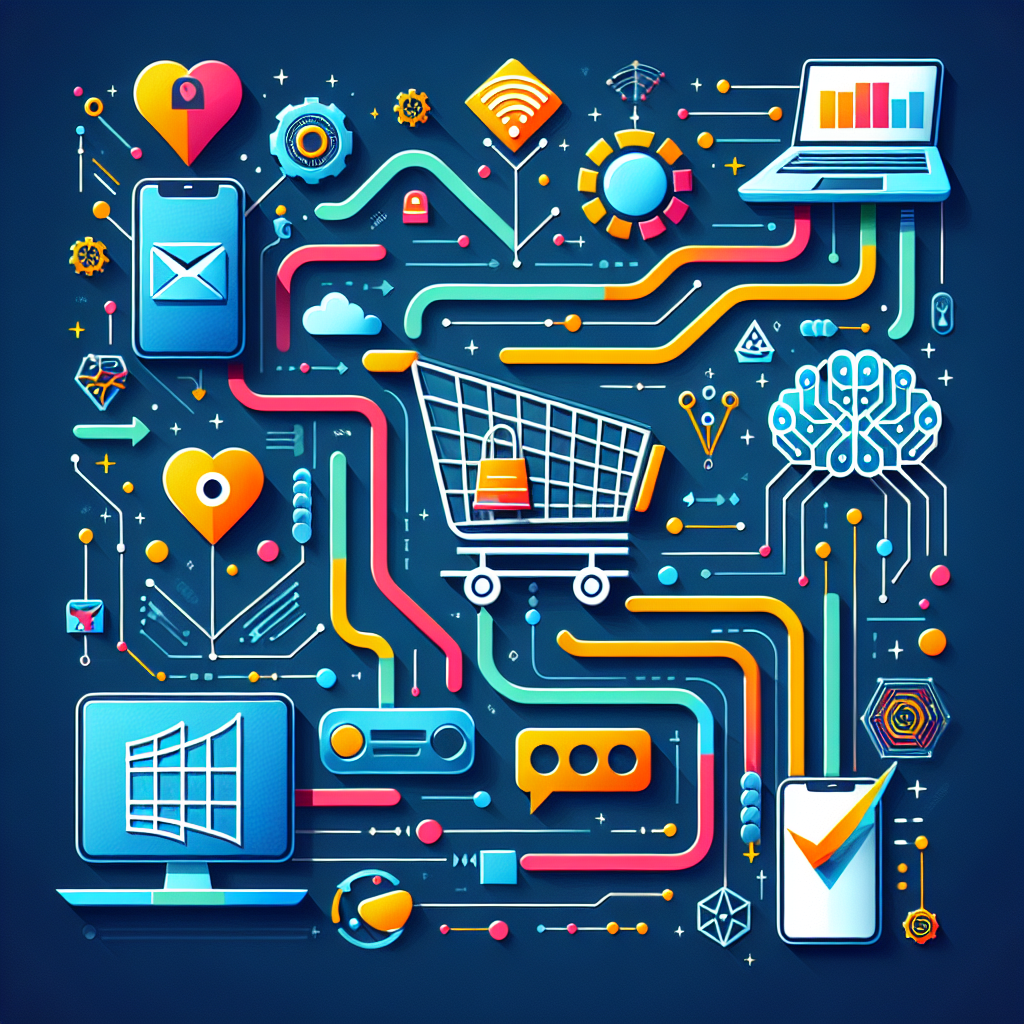In today’s competitive e-commerce landscape, businesses are constantly looking for innovative ways to stand out and attract customers. One such way is by utilizing artificial intelligence (AI) to drive marketing strategies. AI-driven e-commerce marketing strategies are becoming increasingly popular as they offer businesses the ability to analyze data, personalize customer experiences, and optimize marketing campaigns in real-time.
AI-driven e-commerce marketing strategies use machine learning algorithms to analyze customer behavior, predict future trends, and automate marketing processes. This allows businesses to target the right audience with the right message at the right time, ultimately increasing sales and customer loyalty. In this article, we will explore some of the most effective AI-driven e-commerce marketing strategies and how businesses can implement them to drive success.
Personalization
One of the key benefits of AI-driven e-commerce marketing is the ability to personalize customer experiences. By analyzing customer data such as browsing history, purchase behavior, and demographic information, businesses can create highly targeted marketing campaigns that resonate with individual customers. AI algorithms can segment customers into different groups based on their preferences and behavior, allowing businesses to deliver personalized product recommendations, discounts, and promotions.
For example, AI-powered recommendation engines can analyze a customer’s browsing history and previous purchases to suggest products that are likely to interest them. This not only increases the likelihood of a purchase but also enhances the overall customer experience. By personalizing marketing messages and offers, businesses can build stronger relationships with customers and increase customer loyalty.
Predictive Analytics
Another key benefit of AI-driven e-commerce marketing is the ability to predict future trends and customer behavior. By analyzing historical data and using predictive analytics algorithms, businesses can anticipate customer needs and preferences, allowing them to proactively target customers with relevant offers and promotions. Predictive analytics can also help businesses optimize their inventory management, pricing strategies, and marketing campaigns based on anticipated demand.
For example, AI algorithms can analyze seasonal trends, competitor pricing, and customer behavior to predict which products are likely to sell well in the future. This allows businesses to stock up on popular items, adjust pricing strategies, and launch targeted marketing campaigns to capitalize on emerging trends. By leveraging predictive analytics, businesses can stay ahead of the competition and drive higher sales and revenue.
Automated Marketing
AI-driven e-commerce marketing also enables businesses to automate marketing processes and campaigns. By using AI-powered tools such as chatbots, email marketing platforms, and social media management tools, businesses can streamline their marketing efforts and reach customers across multiple channels. AI algorithms can analyze customer interactions, automate responses, and personalize messages to drive engagement and conversions.
For example, chatbots can be used to provide instant customer support, answer questions, and guide customers through the purchasing process. Email marketing platforms can use AI algorithms to segment customers, personalize email content, and send targeted campaigns based on customer behavior. Social media management tools can analyze social media interactions, schedule posts, and track engagement metrics to optimize marketing campaigns.
FAQs:
Q: What are some common challenges businesses face when implementing AI-driven e-commerce marketing strategies?
A: Some common challenges businesses face when implementing AI-driven e-commerce marketing strategies include data privacy concerns, lack of technical expertise, and integration issues with existing systems. Businesses need to ensure they have proper data protection measures in place to safeguard customer information and comply with regulations such as GDPR. Additionally, businesses may need to invest in training their staff or hiring external experts to help them implement and manage AI-driven marketing tools effectively. Integration with existing systems and processes can also be a challenge, as businesses need to ensure that AI tools can seamlessly integrate with their e-commerce platforms, CRM systems, and other marketing tools.
Q: How can businesses measure the success of their AI-driven e-commerce marketing strategies?
A: Businesses can measure the success of their AI-driven e-commerce marketing strategies by tracking key performance indicators (KPIs) such as conversion rates, customer acquisition costs, average order value, and customer lifetime value. By analyzing these metrics, businesses can assess the impact of their AI-driven marketing campaigns on sales, revenue, and customer engagement. Businesses can also use A/B testing, customer surveys, and analytics tools to gather feedback and insights on the effectiveness of their AI-driven marketing strategies. Additionally, businesses can use attribution modeling to track the contribution of AI-driven marketing channels to conversions and revenue.
Q: How can businesses ensure the ethical use of AI in e-commerce marketing?
A: To ensure the ethical use of AI in e-commerce marketing, businesses should prioritize transparency, accountability, and fairness in their AI-driven marketing strategies. Businesses should clearly communicate how they are using AI algorithms to analyze customer data, personalize marketing messages, and automate marketing processes. Businesses should also be transparent about how customer data is being collected, stored, and used, and give customers the option to opt-out of data collection or processing. Additionally, businesses should regularly audit their AI algorithms to identify and address any biases or inaccuracies that may impact the fairness and accuracy of their marketing campaigns. By prioritizing ethical considerations in their AI-driven e-commerce marketing strategies, businesses can build trust with customers and maintain a positive brand reputation.
In conclusion, AI-driven e-commerce marketing strategies offer businesses a powerful way to personalize customer experiences, predict future trends, and automate marketing processes. By leveraging AI algorithms, businesses can optimize their marketing campaigns, increase sales, and drive customer loyalty. To successfully implement AI-driven e-commerce marketing strategies, businesses need to prioritize data privacy, technical expertise, and ethical considerations. By investing in AI-powered tools and platforms, businesses can stay ahead of the competition and drive success in the competitive e-commerce landscape.

